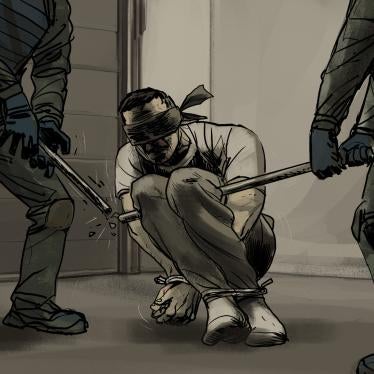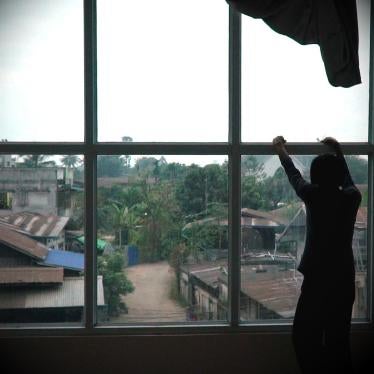(New York) – Nepali legislators should reject problematic provisions of the proposed Truth and Reconciliation Commission (TRC) bill introduced in parliament on April 9, 2014, Amnesty International, Human Rights Watch, and the International Commission of Jurists said today. Despite a January 2 directive from the Nepali Supreme Court that the law must meet international legal standards, the bill contains provisions for amnesty that violate international law.
In particular, the bill retains language from a 2012 executive ordinance that permitted amnesty for crimes under international law committed during Nepal’s civil war. A landmark Supreme Court ruling rejected the ordinance, and explicitly directed the government to introduce a new bill in compliance with Nepal’s obligations under international law. Amnesty for gross human rights violations, such as those enumerated in the bill, is prohibited by international law.
“The Nepali government seems to have simply tabled a mildly reworked version of the 2012 ordinance despite the Supreme Court’s landmark judgment on transitional justice,” said Sam Zarifi, Asia-Pacific regional director at the International Commission of Jurists. “This deliberately undermines the judiciary, and raises serious concerns over the government’s respect for the rule of law in Nepal.”
On March 25, 2014, the Nepali government announced it would present draft laws to establish the TRC and a commission of inquiry into disappearances within 15 days. An expert task force established by the government proposed revised language, but this text was not incorporated into the draft.
The current bill enumerates the serious human rights violations that would fall within the jurisdiction of the commission. These include murder, abduction, rape and sexual violence, forced evictions, and mental and physical torture. However, section 26 contains vague language that does not completely reject amnesty, leaving open the possibility that perpetrators of these crimes might instead benefit from an amnesty.
Although section 26(2) contains a specific exception from amnesty for rape, the bill does not address the 35-day statute of limitation period on reporting rape under the Nepali criminal code, which precludes victims from accessing justice. The provision on amnesty is identical to section 23 of the 2012 ordinance, which had been explicitly rejected by the Supreme Court as unconstitutional and in breach of Nepal’s international legal obligations.
“It is baffling why the Nepali government would propose a bill that contains exactly the same troubling provision allowing those responsible for the most heinous crimes to go scot free,” said Brad Adams, Asia director. “The government’s obligation is to ensure justice for the victims, not amnesty for the victimizers.”
The Supreme Court ruled that any mechanism for transitional justice must conform to international standards, lead to accountability for serious human rights violations, and ensure victims their right to remedy and reparation, which includes the right to truth, justice, and guarantees of non-repetition.
“Nepali legislators should unequivocally reject the problematic provisions of the bill and amend it to be consistent with the Supreme Court’s directive,” said Richard Bennett, Asia director at Amnesty International. “The bill as drafted makes a mockery of promises on justice and accountability made to victims as part of the peace agreement. Those who have suffered serious human rights abuses will effectively be stripped of their chance of redress.”
The human rights organizations reiterated their calls to the Nepali government to implement the Supreme Court’s ruling to:
· Establish a “Truth and Reconciliation Commission” and a “Commission of Inquiry on Enforced Disappeared Persons”;
· Criminalize the act of enforced disappearance in accordance with the definition set out in the International Convention on the Protection of All Persons from Enforced Disappearance and ensure that it is punishable with penalties commensurate with the gravity of the crime;
· Ensure that other serious crimes are made criminal under domestic law, including crimes under international law such as crimes against humanity, in a manner that is consistent with international law;
· Prohibit amnesty for gross human rights violations or crimes under international law;
· Ensure there are no time limits on the prosecution of serious crimes, including all crimes under international law such as enforced disappearance, torture, war crimes, and crimes against humanity;
· Ensure that the composition and structure of the commissions comply with international standards. In particular, there should be a fair vetting system that aims to ensure the impartiality of the commission members;
· Require that necessary legal and institutional measures be taken to enable and ensure the establishment, adequate resourcing, and maintenance of effective victim and witness protection mechanisms; and
· Establish and require other necessary legal, administrative, institutional, or other arrangements for an effective reparation program.






